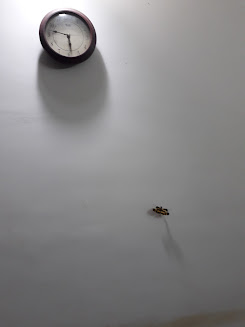Beyond Covid
Half
a year is a pretty long period in the autumn of one’s life. Covid has consumed
as much as that at a time when I was contemplating certain substantial changes
in my lifestyle. I wanted to do some travelling first of all, some
long-distance drives on weekends along with Maggie. That was meant to be my way
of making the imminent retirement a smooth transition from the classroom to the
cosmos. Ironically, my cosmos shrank to my table with a laptop and the current
book. Ironies are inescapable companions throughout life.
Blogchatter’s A2Z Challenge kept me blissfully engaged in April and the
exercise ended in the creation of a book about books: Great
Books for Great Thoughts. This volume is available
absolutely free; just a click on the given link is all that it costs you.
Online classes have provided me the only meaningful contact with the
world from May onwards. The alarming spread of the pandemic prompted me to look
at the meaning of suffering and the result was a short book: Coping
with Suffering. After reading that book, one of my
fellow bloggers wondered whether the pandemic had brought about a religious
conversion in me. The book looks at suffering from the points of view of
Hinduism, Islam, Christianity, and Buddhism before doing the same from more
literary and secular angles. For once I found myself dealing with religions
with considerable benignity which made my friend wonder about my possible
conversion.
June and July found me experimenting with Google docs and forms so that
I could make some effective changes to my online classes. One of my former
colleagues in Delhi assisted me generously by sending me a lot of information
about sites that can be of immense help to online teachers. The latest such
message from her landed in my phone yesterday: Open
digital educational tools for interactive online teaching and learning. I
have not been able to employ much of this in the actual classroom yet.
Technology has its limits too.
What amuses me most is the increased interaction between my students and
me when we don’t meet each other at all. Many of them call me and more of them
use messaging systems to be in personal touch. A few of them have become part
of the family, so to say, with Maggie too joining in the lively conversations
that have little to do with classes. The profession has certain joys that have
nothing much to do with the profession!
Life goes on in spite of Covid. But the alarming rate of the increase in affected cases day after day takes away much of the joy. Maybe, Covid is here to stay with us for a while and we have to learn to live with it.
PS. I collected 30 of my short stories too during this period and the anthology, Love in the Time of Corona, is available as an e-book.


Comments
Post a Comment